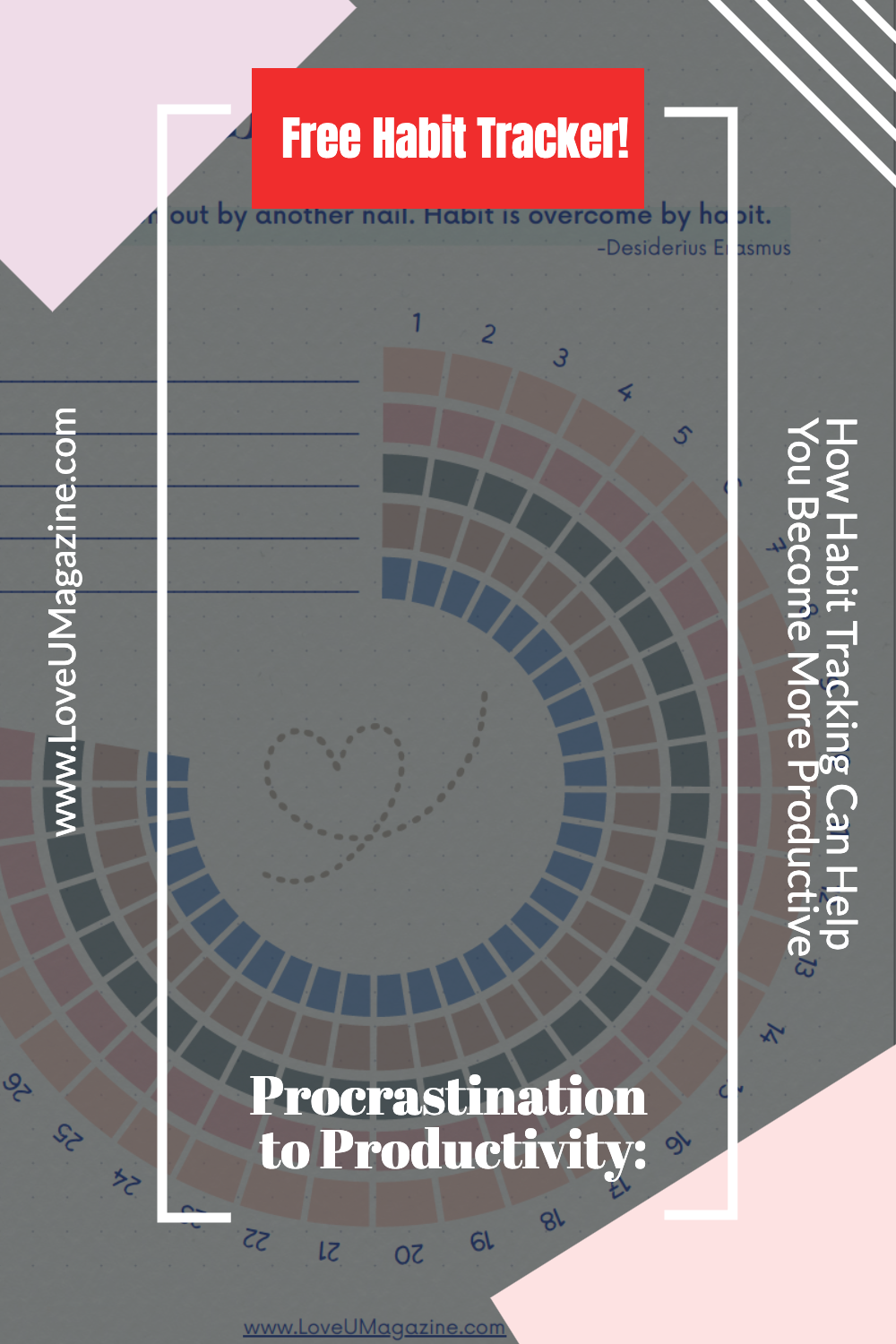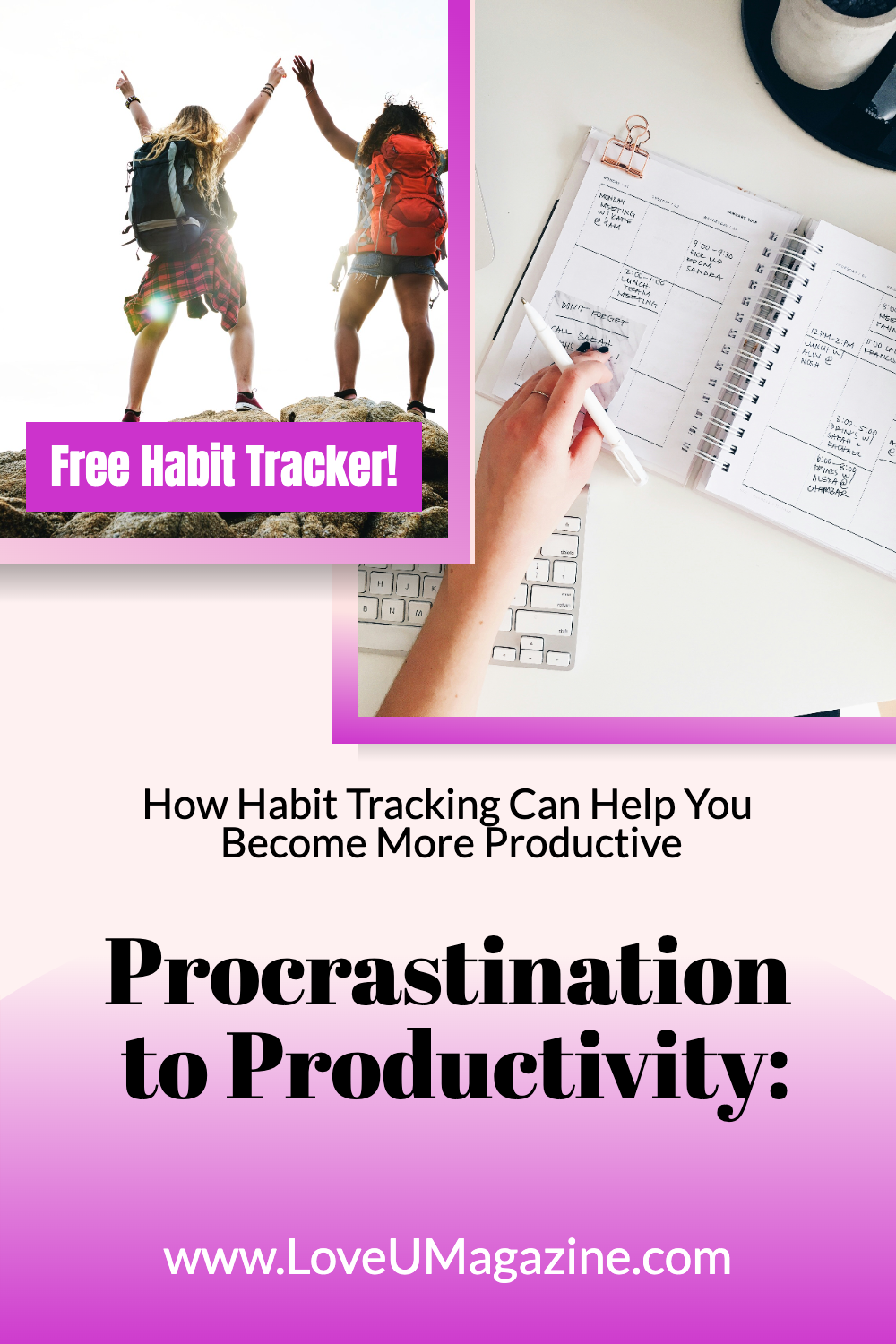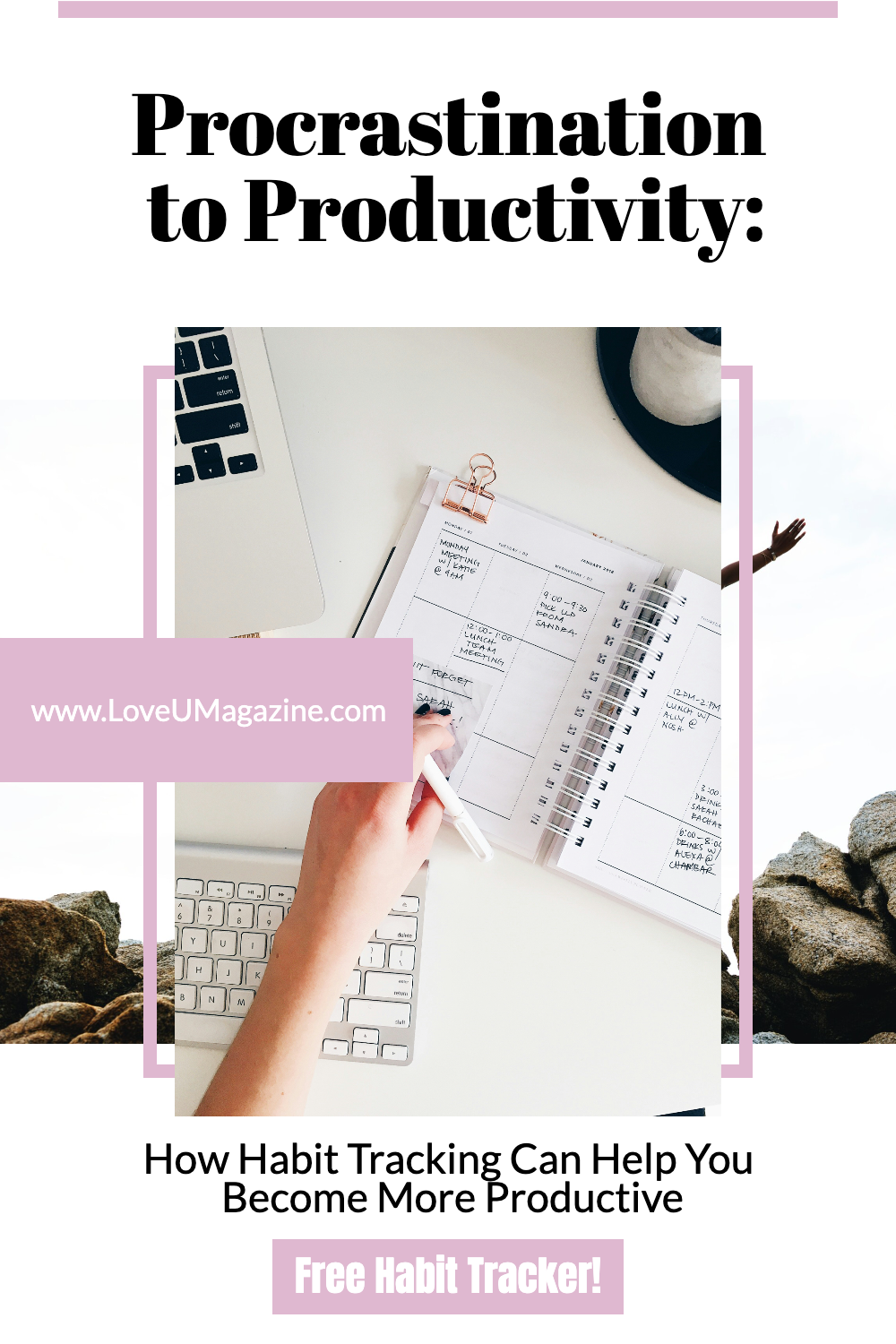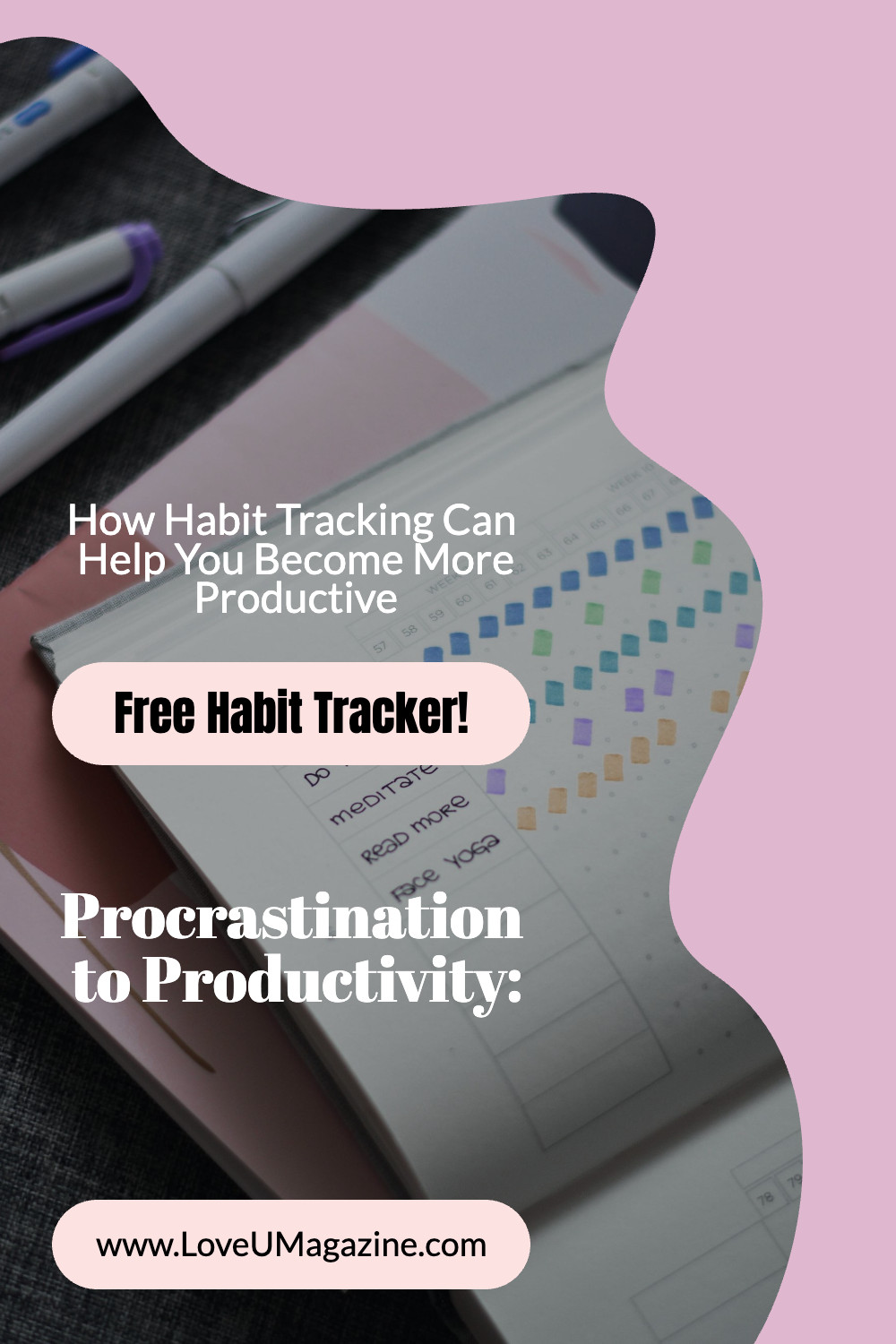Procrastination to Productivity: How Habit Tracking Can Help You Become More Productive
In this article, we'll look at why and how one should track habits, as well as offer tips for success and tool suggestions. Read on to learn more!
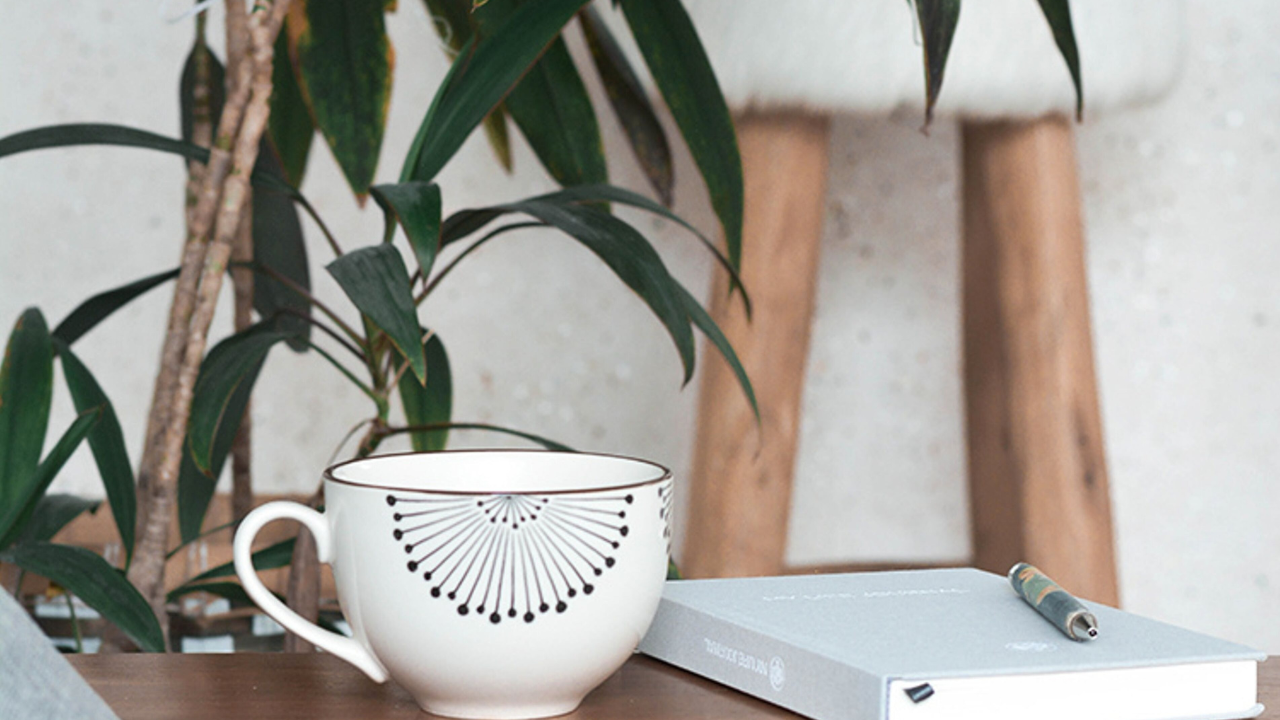
We all have undesirable habits that may keep us from achieving our goals. Whether it's delaying important tasks, indulging in mindless activities, or simply failing to prioritize our time, these undesirable behaviors can lead to unproductivity and prevent us from reaching our full potential. However, by examining the link between habits and productivity and utilizing the practice of habit tracking, we can break free from these unproductive patterns to create lasting change.
A Closer Look at Habits and Productivity
The Oxford Dictionary defines a habit as a settled or regular tendency or practice, especially one that is hard to give up.
Habits are formed through habituation, which occurs when our brains learn to associate a specific behavior with a particular outcome. For example, if we consistently reach for our phone when we're bored, our brain will learn to associate boredom with phone use. Over time, we will begin to do this automatically without even thinking about it.
The problem with unproductive or bad habits is that they can become habitual, much like any other behavior. Without consciously thinking about our habits, we risk normalizing unidentified patterns. These unintentional habits, if unproductive in nature, may lead to increased procrastination or lack of focus, which can ultimately prevent us from achieving our goals. However, by understanding the link between habits and productivity, we can identify unproductive habits and replace them with productive ones.

Identifying Unproductive Habits and Replacing Them with Productive Ones
The first step in breaking free from unproductive habits is to identify them. Some of the most common unproductive habits are:
- Procrastination
- Multitasking
- Overtasking
- Excessive screen time
- Over engaging on social media
- Indulging in self-pity
- Engaging in negative self-talk
Once you've identified your unproductive habits, the next step is to replace them with productive ones. For example, if you find yourself multitasking, you can replace this habit by eliminating distractions for a scheduled period so you can focus on one task at a time. Or, if you find yourself excessively engaging on social media, you can replace this habit by setting specific times each day to engage on social media.
Creating a Habit Tracking Plan That Works for You
Habit tracking is a powerful tool that can help us stay on track and achieve our goals. The key is to find a habit-tracking method that works for you. Some popular habit-tracking methods include:
- Keeping a habit journal
- Using a habit-tracking app
- Setting reminders - a popular solution
- Creating a habit-tracking spreadsheet
- Using a habit-tracking planner
Whatever method you choose, make sure to make it simple and easy to use so you will stick with it.
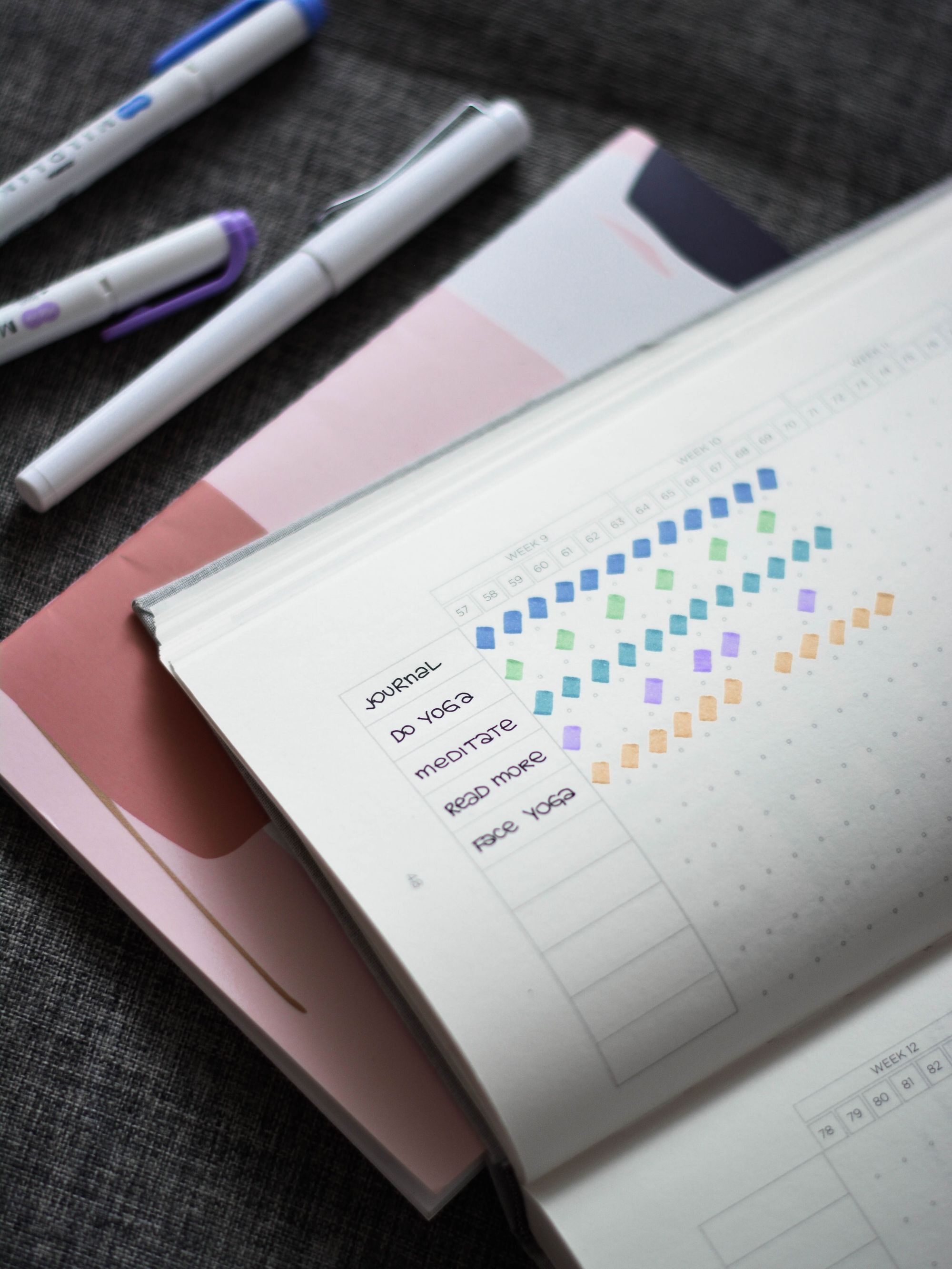
Utilizing Technology and Tools to Stay on Track
In today's digital age, many technology and tools are available to help us stay on track with our habit tracking. Some popular options include:
- Habit Tracking Apps: There are many habit-tracking apps, such as Habitica and Productive. These apps allow you to set reminders, track your progress, and connect with friends for accountability and motivation.
- Productivity Tools: Tools like RescueTime and Focus@Will may help you stay focused and on task by blocking distractions or playing background music designed to help you concentrate.
- Time Tracking Tools: Tools like Toggl and Harvest can help you track your time and identify areas where you spend too much time on unproductive activities.
- Goal Tracking / Accountability Tools: Platforms like StickK and Beeminder allow you to set goals, track your progress, and even involve friends or accountability partners for added motivation.
In addition to these tools, it's also important to remember that habit tracking is not about perfection; it's about progress and growth. It's normal to fall off track and make mistakes. The important thing is to keep going and celebrate the small wins along the way. With time and practice, you'll develop a better understanding of your habits, and you'll be able to make better-informed decisions about improving your productivity and achieving your goals.
By understanding the link between habits and productivity and utilizing the power of habit tracking, we can break free from unproductive patterns and create positive change in our lives. The key is to identify unproductive habits, replace them with productive ones, and find a habit-tracking method that works for you. Whether it's keeping a habit journal, using a habit-tracking app, setting reminders, or utilizing technology and tools, many options are available to help us stay on track and achieve our goals. Remember, habit tracking is not about perfection; it's about progress and growth, so don't get discouraged if you slip up. The important thing is to keep going and celebrate the small wins along the way.
Don't let all the tools and apps intimidate you. Download our free, printable habit tracker below. 👇 Write your habit (or goal) on the line and mark off each day in the month you complete the task.
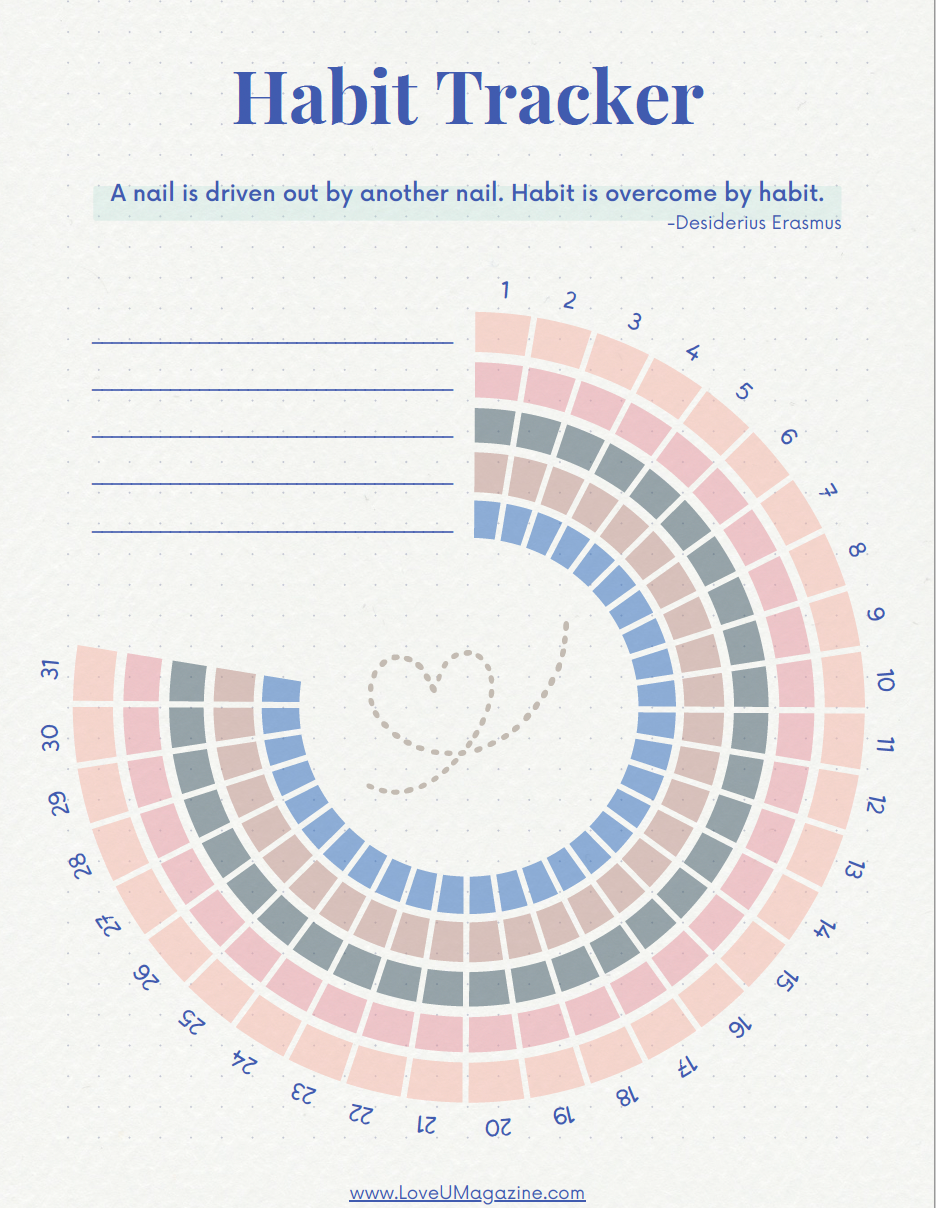
Get Pinning!

